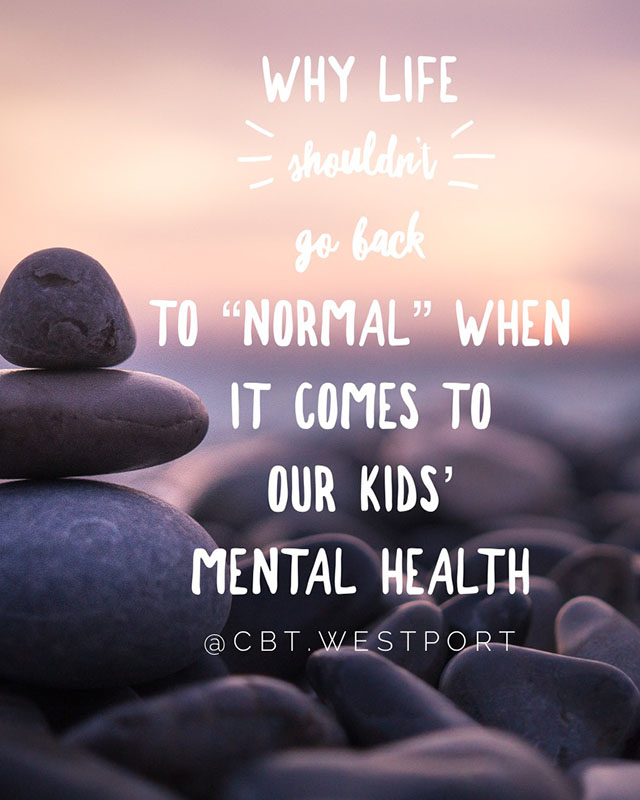Most of America is coming out of over a year of lock down due to the Covid-19 pandemic. The majority of schools are offering at least some in-person learning. Recreational sports are beginning to resume. Several states have started to drop mask mandates for vaccinated individuals. Large scale sporting events and even concerts are back on Spring and Summer schedules for many venues.
Things are finally getting back to normal.
We are hearing this phrase in many different settings. At the grocery store check-out line. At school drop off. At the end of work zoom calls. We smile as we say it – no doubt dreaming of the summer BBQ’s and beach vacations that may finally be within reach.
But when it comes to the mental health of our kids and teens, what if “getting back to normal” isn’t the best metric to meet?



